The DStv price hike storm
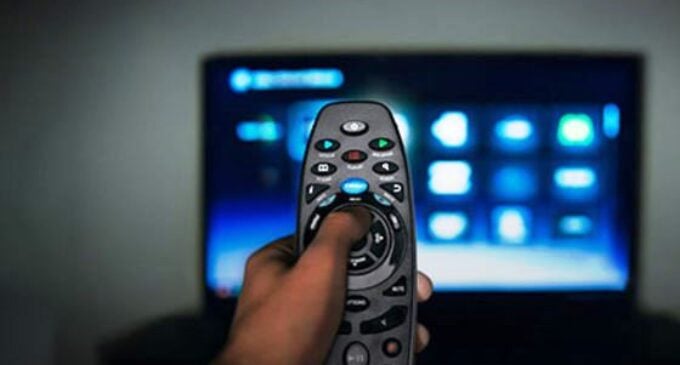
BY EUGENE UZOR
Nigerians are fuming as they grapple with an unprecedented surge in inflation, which reached a staggering 31.7% in February 2024. The economic strain on its citizens is becoming increasingly unbearable and a new report titled “The Price Is Everything” from SBM Intelligence does a great job of tracking the trajectory taken by inflation for a number of products. Essential commodities, from soap to fuel, have witnessed alarming price hikes, sometimes soaring by over 150% within a year.
Faced with skyrocketing costs for necessities, Nigerians have been forced to adopt various coping strategies to navigate the turbulent financial landscape. The SBM Jollof Index, a poignant barometer of food affordability, paints a grim picture of the nation’s plight. Between October 2023 and March 2024, Nigeria experienced one of its worst food crises, with the price of bread—a dietary staple for many—skyrocketing by an alarming 81%. Simultaneously, the rise in petrol prices has further exacerbated transportation costs nationwide.
However, amidst this backdrop of economic hardship, the most direct backlash and resistance has come in response to Multichoice’s DSTV’s increase in the price of satellite TV package subscriptions. With a population of just under 220 million, Nigeria is one of the most populous countries globally. Despite this demographic weight, a striking void exists—the absence of its sports leagues from local or national television platforms. Surprisingly, rather than addressing this glaring gap, attention is diverted towards a contentious battle aimed at reducing the cost of satellite TV subscriptions offered by DSTV. Multichoice’s move has sparked anger and frustration among many Nigerians, who see it as a callous disregard for their financial struggles and an unjustifiable imposition on already strained household budgets.
But this is not rational. The truth is that as the naira weakens against the US dollar, DSTV’s content acquisition costs have soared because most of its coveted content, from the EPL to international channels, is bought in dollars. So, an increasingly frail Naira was always going to translate to a more expensive DSTV for Nigerians.
The global landscape of content acquisition itself is a battlefield. Broadcasting rights, especially for the ever-popular English Premier League (EPL) and the UEFA Champions League (UCL), are experiencing a global price surge that inevitably impacts the subscription fees in all territories, including Nigeria. There’s no escaping the rising tide of content costs.
It’s a classic currency catch-22: DSTV needs to raise prices to stay afloat, but those price hikes fuel public anger. Nigerians also need more compelling alternatives. The local television network is underdeveloped, and domestic sporting leagues barely bother to compete. This lack of choice makes DSTV Premium seem like an essential service for many, and the pain of even considering having to do without DSTV’s content is translated into anger at the company rather than Nigeria’s failing economy or those responsible for its growth and management.
The public outcry and frustration that usually follow DSTV’s price increases sometimes get a reaction from Nigeria’s National Assembly, which tends to wave a fist at DSTV instead of tasking itself with helping Nigeria develop its local sporting leagues and terrestrial TV offerings.
When we compare DSTV Premium pricing across Africa, a hypothetical conversion to naira from dollar-priced markets like Kenya and South Africa suggests Nigerians might be paying less than some other African countries for DSTV content.
In Kenya, DSTV Premium currently costs Sh10,500, translating to roughly ₦109,200 based on today’s exchange rate of 1 USD to 1400 NGN. Similarly, the South African price of R929 (USD 49.36) translates to ₦69,104.
Interestingly, DSTV Premium in Nigeria currently sits at ₦37,000, which is considerably lower than the naira equivalent in Kenya and South Africa. This suggests that DSTV pricing in Nigeria considers local market factors and purchasing power.
Nigeria faces a unique dilemma, where the uproar over DSTV premium subscription hikes starkly contrasts with the seemingly muted response to rising food prices. In 2009, the cost of DStv Premium in Nigeria stood at ₦9000, soaring to ₦37,000 by 2024—a significant 311.11% increase over 15 years. Meanwhile, the price of a bag of rice, arguably Nigeria’s most consumed staple, has surged from ₦2500 in 2009 to a staggering ₦70,000 in 2024, marking a 2700% increase that dwarfs the rise in DSTV Premium’s prices.
Despite these stark figures, public outcry and legislative attention often gravitate towards DSTV price hikes, while the critical issue of food inflation receives less fervour. Food inflation directly impacts every Nigerian household, straining their ability to afford essentials. Conversely, DSTV premium primarily caters to a financially able population segment. While entertainment costs are frustrating, they pale in comparison to the challenge of securing daily meals.
The exorbitant cost of rice could escalate into a national security concern, particularly if it mirrors spikes in food inflation for other staples. Various factors may explain this differing public reaction. The intricate drivers of food inflation, such as global market trends and climate shifts, may seem less immediate and harder to face up to than and a single company might present an easier target especially if some xenophobic sentiment is in play.
This situation exposes a gap between economic struggles that prompt public outcry and those silently endured. The future will reveal whether this dynamic shifts as Nigerians confront the harsh realities of food insecurity in a nation where a basic staple increasingly slips out of reach for many.
Uzor is a financial analyst based in Lagos.
Views expressed by contributors are strictly personal and not of TheCable.




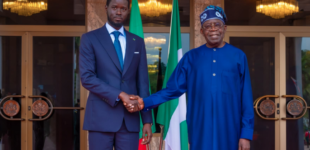

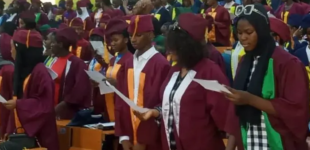


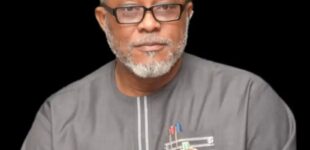
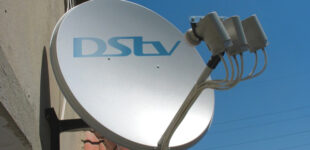
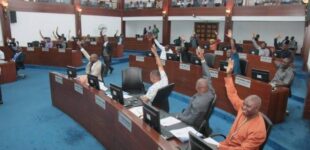

There are no comments at the moment, do you want to add one?
Write a comment